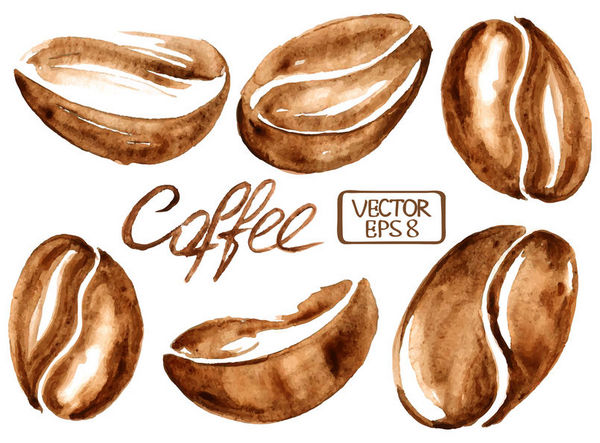Scientific interpretation: the relationship between caffeine and taste

For professional baristas, please follow the coffee workshop (Wechat official account cafe_style)
A new study on coffee from Cornell University has come to two interesting conclusions. The first conclusion is that coffee consumption changes people's perception of its taste, and the second is that coffee has a good refreshing effect, probably because of the comforting effect (i.e. psychological effect, no actual effect), rather than the amount of caffeine.
The 107 participants in the study tasted two different kinds of coffee for several days in a row. One of them is caffeine-free, moderately sweet and adds 200 milligrams of synthetic caffeine. The other is also non-caffeinated and moderately sweet, but quinine is added to imitate the bitterness of the first coffee.
After tasting the two different types of coffee, the participants took a sensory test and rated the sweetness of the coffee they tasted and the sucrose solution they served. At the same time, they also need to rank how awake they are, how hungry they are, and how much caffeine is in their coffee. In addition, the scholars also tested their reaction time.
Interestingly, participants were unable to distinguish between caffeinated and non-caffeinated coffee. After drinking the two kinds of coffee, there was no difference in the level of alertness, but after drinking caffeinated coffee, their reaction time increased slightly but not significantly. The results show that coffee has only a psychological effect on pick-me-up and has no actual effect.
Robin Dando, senior author of the study and associate professor of nutrition, said: "We think that simply drinking a cup of coffee may have a comforting or regulating effect. Like Pavlov's dogs (saliva is secreted as soon as the bell rings), the behavior of drinking coffee-the mellow aroma and excellent taste of coffee-is often the key to what we find refreshing. So the participants felt refreshed anyway, even though the coffee didn't contain caffeine at all. It's just that you feel refreshed by this way of thinking after drinking coffee-it will make you feel more and more refreshed. "
The study also showed that people who drank caffeinated coffee felt less sweet when they tasted sucrose solution than those who drank non-caffeinated coffee. But there is not much difference in the other four tastes (bitter, sour, salty and fresh).
"when you drink caffeinated coffee, it changes your perception of taste-no matter how long it takes," Dando said. So if you eat directly after drinking caffeinated coffee or other caffeinated drinks, you are likely to feel that the taste of the food has changed. "
This is due to the effect of caffeine on the adenosine receptor, which promotes drowsiness. By inhibiting this receptor, caffeine makes us feel more refreshed, but it also weakens our ability to perceive sweetness.
Important Notice :
前街咖啡 FrontStreet Coffee has moved to new addredd:
FrontStreet Coffee Address: 315,Donghua East Road,GuangZhou
Tel:020 38364473
- Prev

Attention, cat slave! The Central Cat Dou sighs the dessert Coffee Milk Jelly Q bullet with high quality
For professional baristas, please follow the coffee workshop (official Wechat account cafe_style). It's all right to find a tranquil and relaxing place in downtown Central. Recently, there is an upstairs Caf stationed on Wellington Street, the location is convenient but elegant, and the cat is the theme. There will be a cat party on Sunday. Guests are welcome to come with their masters. It is believed that it will become a shrine for cat slaves, but the seats are limited.
- Next

Taipei Instagram popular Cafe! Super stretch silk 5cm thick "blue pizza"
For the exchange of professional baristas, please follow the coffee workshop (Wechat official account cafe_style). Internet celebrities who love IG clocking in should not be missed. Pingzi recently ate and wanted to recommend Taipei located in Qingguang Business District to make this stack F.M.L Caf garden latte with the theme of flowers, light meat and flavor lattes, focusing on the female consumer market.
Related
- What is the difference between Indonesian Sumatra Mantinin coffee and gold Mantinin? How to distinguish between real and fake golden Mantelin coffee?
- What does bypass mean in coffee? Why can hand-brewed coffee and water make it better?
- Unexpected! Ruixing Telunsu lattes use a smoothie machine to foam milk?!
- % Arabia's first store in Henan opens into the village?! Netizen: Thought it was P's
- Does an authentic standard mocha coffee recipe use chocolate sauce or powder? Mocha Latte/Dirty Coffee/Salty Mocha Coffee Recipe Share!
- What is the difference between Vietnam egg coffee and Norway egg coffee? Hand-brewed single product coffee filter paper filter cloth filter flat solution!
- What is the difference between sun-cured and honey-treated coffee? What are the differences in the flavor characteristics of sun-honey coffee?
- How to make Italian latte! How much milk does a standard latte use/what should the ratio of coffee to milk be?
- How to make butter American/butter latte/butter Dirty coffee? Is hand-brewed coffee good with butter?
- Is Dirty the cold version of Australian White? What is the difference between dirty coffee/decent coffee and Australian white espresso?

